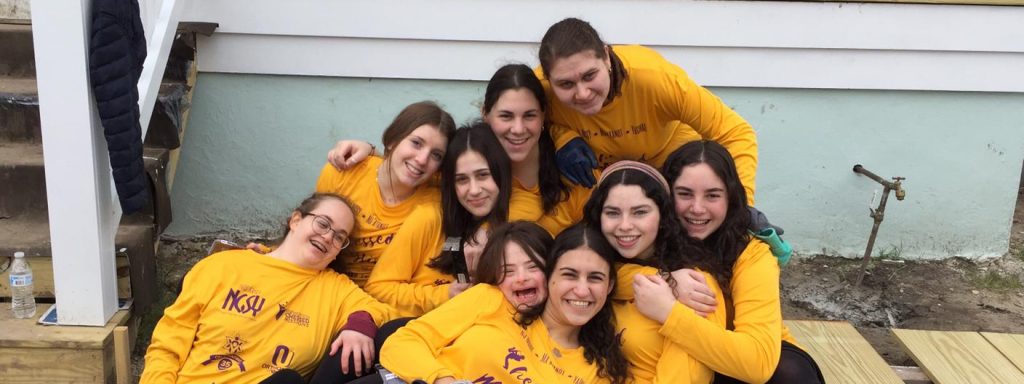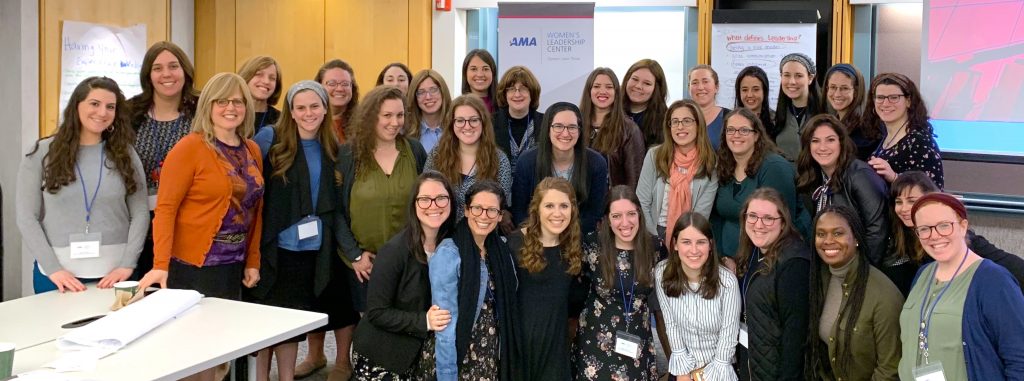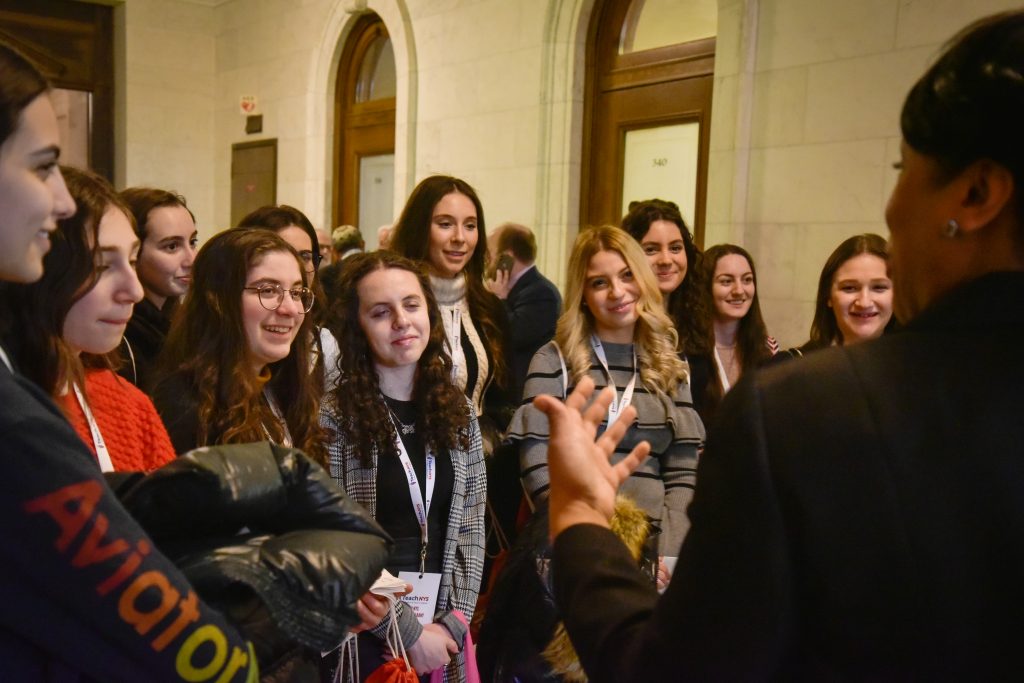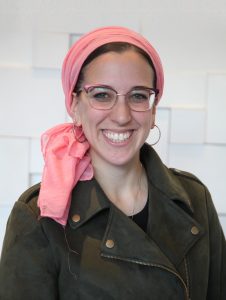Inside the OU – Summer 2019
Happenings Around the OU
First-Ever NCSY/Yachad Chesed Mission
Over the past twelve years, New Jersey NCSY has run close to ninety chesed missions. This past March, however, it ran its first-ever joint New Jersey NCSY/Yachad mission, giving participants the opportunity to learn about chesed and inclusion all at once. Yachad/NJCD is the OU’s program that addresses the needs of Jewish individuals with disabilities and ensures their inclusion in every aspect of Jewish life.
This trip was an amazing bonding experience for both Yachad and NCSY participants, and a powerful lesson in the value of chesed. —Rabbi Ethan Katz, Director, New Jersey NCSY
During the five-day mission, students from Ma’ayanot School for Girls in New Jersey, NCSY advisors and a number of Yachad members traveled to New Orleans, Louisiana, where they worked with Habitat for Humanity on homes being restored from damage caused by Hurricane Katrina. In addition to sanding and painting shutters and building a fence, they toured the Lower 9th Ward to visit the kevarim of sifrei kodesh that were destroyed by the hurricane.
Beginning this summer, the NCSY Disaster Relief Missions Initiative, led by Rabbi Ethan Katz, Director of New Jersey NCSY, is being expanded beyond New Jersey to include many more teens from across North America and to reach more communities in need.
 Ask Your Campus Rabbi—Via WhatsApp?
Ask Your Campus Rabbi—Via WhatsApp?
“Can I make Kiddush on bread?;” “Can I ask my non-Jewish classmate for his notes after yom tov?;” “If I put a new mezuzah cover on a scroll that was already fixed to the door, do I make a blessing?” These are some of the questions posted on Shu”T WhatsApp, a halachic question-and-answer group administered by Rabbi Joe Wolfson, OU-JLIC Educator at NYU. With over 250 members, the group, similar to OU-JLIC WhatsApp groups at Brandeis University, Santa Monica College and Brooklyn College, enables students to pose general halachic questions and learn from the answers to others’ questions and the answers. “The power of the group lies not so much in the simple learning opportunity, but in the clear demonstration dozens of times a day that there are so many students who really care about halachah in the downtown New York City community,” said one NYU student. Rabbi Wolfson will be opening a second Shu”T group to account for the demand, as the original group has hit the maximum number of allowed members.
Focusing on Women’s Growth
Orthodox Jewish women raising children often have busy, hectic lives, leaving little time for focusing on spiritual growth.
This was the conundrum facing Aliza Polstein, Program Director at the Chicago Torah Network (CTN) in Illinois. When she heard that Rabbi Phil Karesh, Midwest Regional Director of OU Synagogue and Community Services, was looking to develop an impactful program for the community, Polstein saw an opportunity.
After months of work, this past March the OU and CTN presented Soul Purpose, a two-day spiritual retreat for married women. Attended by over fifty women in Palatine, Illinois, the retreat featured panel discussions and interactive workshops led by educators, psychologists, life coaches and rebbetzins.
“We need to ensure that women have continuing opportunities to grow religiously,” says Rabbi Karesh. Monthly events and weekly chaburahs were planned to keep the spiritual momentum going and Rabbi Karesh hopes to bring Soul Purpose to communities across the country starting next year.
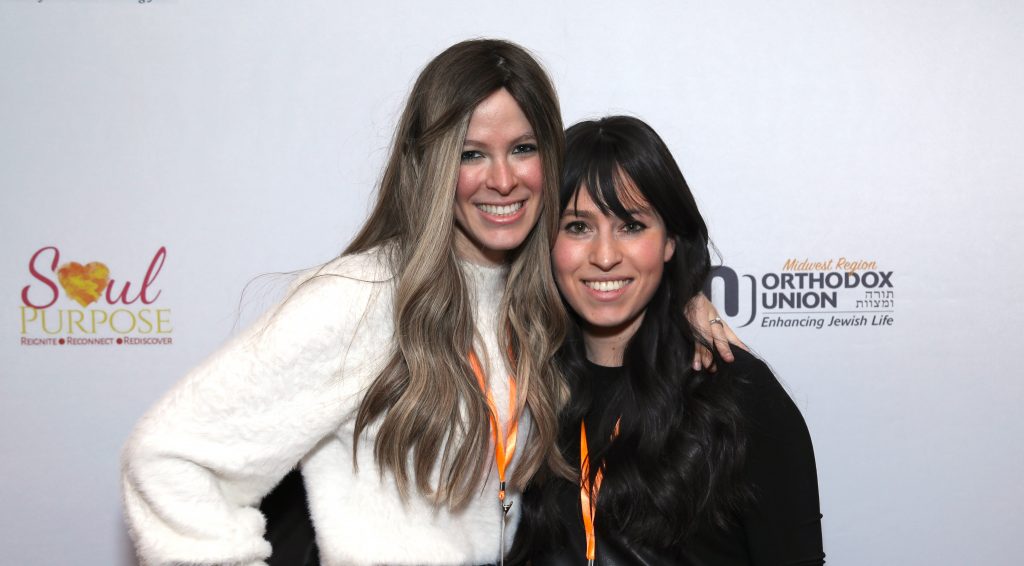
Ahuva Meystel left) and Aviva Abramowitz were among nearly fifty participants at the first annual Soul Purpose event.
Building a Better Workplace
Talent Management Specialist Shalom Orlian and Human Resources Manager Josh Gottesman of OU Human Resources have turned Friday into a day at the office you don’t want to miss.
One Friday every few weeks, the HR Department selects relevant TED TalksTM to present to OU employees, providing new ideas, strategies and practices to boost professional skills and foster a better work environment. The TED Talks have included Israeli music conductor Itay Talgam, who uses other conductors’ body language to highlight different styles of leadership; Daniel Pink, an expert on workplace motivation; Susan Cain, author of Quiet: The Power of Introverts in a World that Can’t Stop Talking, who explained the value of introverted traits in leadership; and Amy Edmonson, who discussed psychological safety at work.
“We want all of our employees to be in the driver’s seat of their careers,” says Orlian. “These Friday meetups are an engaging and thoughtful way to explore the changes we all can make to improve our workplace experience and develop our careers.”
OU Women Develop Leadership Skills
This past May, thirty women employees across OU departments attended the American Management Association’s Women’s Leadership Workshop at its Manhattan offices. The one-day training seminar focused on how women can further their careers and develop better communication standards at work. Through workshops and discussion, participants explored common struggles women face in the workplace, such as making sure their contributions are heard and valued, and how to say no while still being a team player.
“I learned to be conscious of how I am speaking,” says Marketing Coordinator Rachel Leff. “The words I choose are important, but so are my pitch, gravitas and body language.”
“I really appreciated the opportunity to network with women from other companies from across America and brainstorm together,” adds Women’s Initiative Program Manager Eliana Sohn.
This is the second year the OU has participated in this event, thanks to the sponsorship of the OU’s Women’s Affinity Group, which seeks to foster the hiring, training and promoting of women within the organization, as well as forging an inclusive, enjoyable workplace.
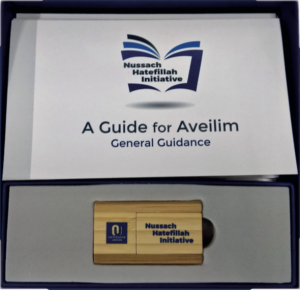 Easing the Path for Aveilim
Easing the Path for Aveilim
Male aveilim often wish to serve as shaliach tzibbur as a merit for their loved one during the year of mourning; however, this can be daunting, especially for those unfamiliar with the text or the nussach.
The OU Department of Synagogue and Community Services, as part of its Nussach HaTefillah Initiative, recently produced the Aveilut Tefillah Kit. This beautifully designed kit, meant to be sent by community chevrot kadisha or chesed committees to the homes of aveilim, contains easy-to-read materials explaining the halachot of aveilut as well as a flash drive with recordings of the tefillot that an avel would be expected to lead. The recordings (currently available for Nussach Ashkenaz) are sung by Cantor Chaim Dovid Berson, Director of the Nussach HaTefillah Initiative.
“People experience enough anxiety after losing a loved one; davening for the amud adds another set of worries—how quickly or slowly should I daven, and what if I make a mistake? This kit gives aveilim the tools to reduce that anxiety,” says Cantor Joel Kaplan of Congregation Beth Sholom on Long Island, New York, who developed the kit with Cantor Berson.
To obtain the kit, available free of charge to all synagogues, contact Judi Steinig at steinigj@ou.org.
Advocacy Wrap-Up
Teach NYS Brings Over $40 Million in Additional Funding to Nonpublic Schools including Yeshivot and Day Schools
Thanks to the work of Teach NYS, a division of the OU’s Teach Coalition, the New York State 2019-2020 budget includes a 100 percent increase for the historic STEM reimbursement program (now totaling $30 million); an additional $25 million in security funds (for a total of $40 million); and a 3.6 percent increase in the CAP/MSR programs. Collectively, Teach NYS was instrumental in bringing over $40 million in additional funding to nonpublic schools beyond what was included in last year’s budget.
In 2018-2019, 14 more schools joined the Teach Coalition from New York, New Jersey, and Florida, bringing the total number of schools in the Coalition to about 100.
“This is significant and unprecedented growth,” says OU Executive Vice President Allen Fagin. “But it’s the result of months of diligent, grassroots advocacy work—bringing elected officials into yeshivot, planning lobby days in specific areas, hosting legislative receptions for community influencers to meet their representatives, and the Teach NYS Mission to Albany.” In March, more than 700 yeshivah and day school students, faculty, parents, school officials and lay leaders joined Teach NYS for its annual Mission to Albany to advocate for increased funding for nonpublic school education. Currently, 450 day schools and yeshivot receive funding from Teach NYS’ efforts.
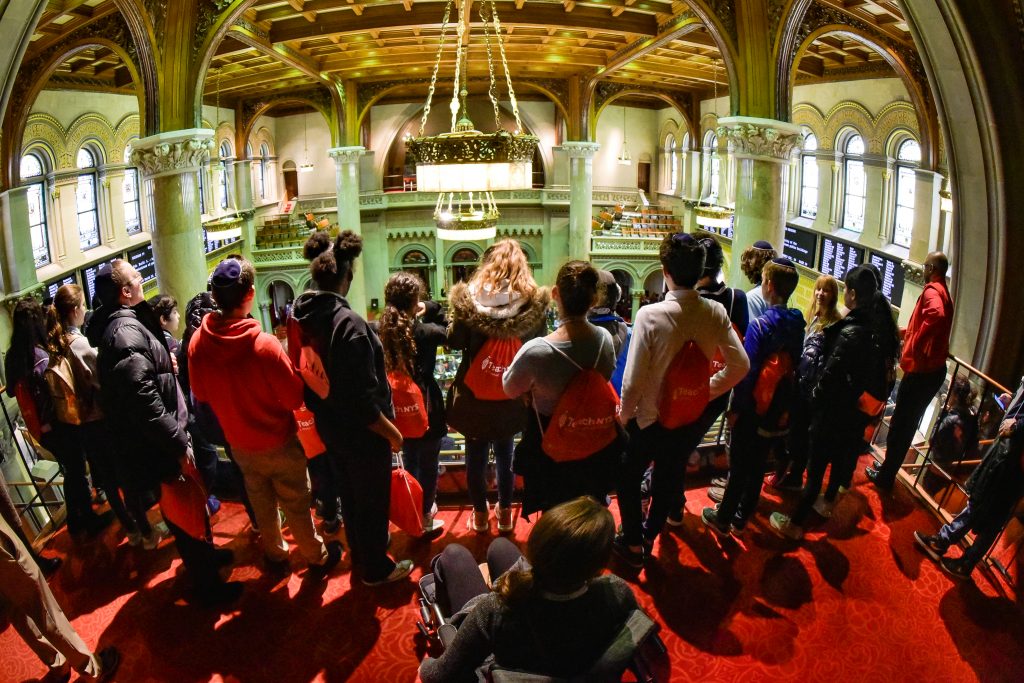
At the Teach NYS Annual Mission to Albany, students gather in the Assembly Chamber of the New York Capitol Building to watch democracy in action. Photos: Tom Semeraro
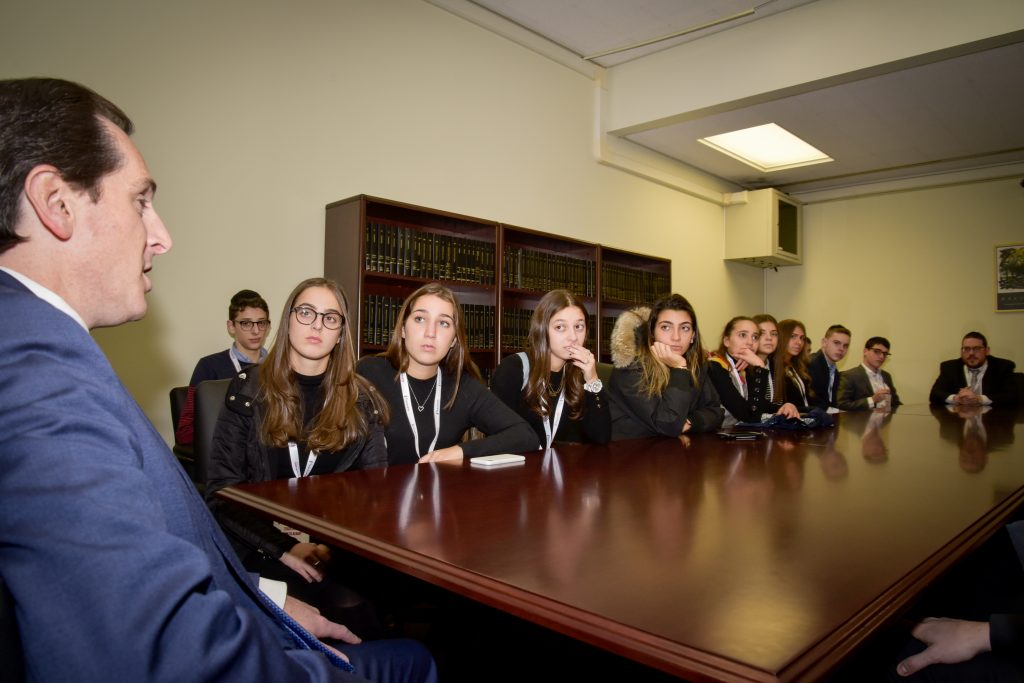
Students from the Hebrew Academy of Five Towns and Rockaways meet with New York State Senator Todd Kaminsky.
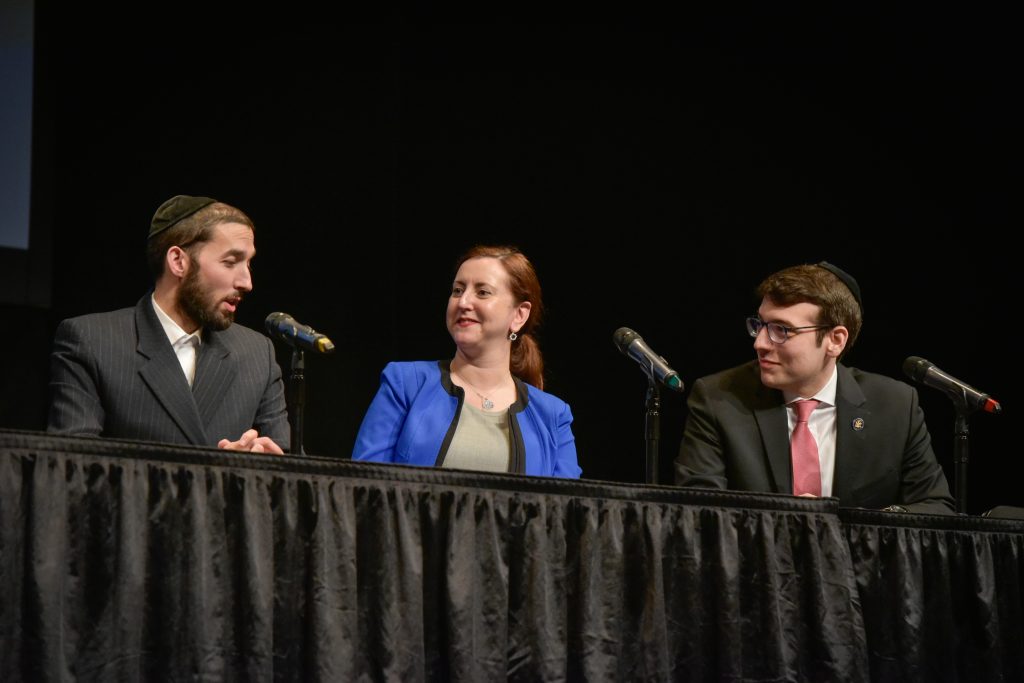
At the mission, Assemblymembers Simcha Eichenstein (D-Brooklyn), Nily Rozic (D-Queens) and Daniel Rosenthal (D-Queens) discuss their transition from yeshivah day school to Assemblymembers and how they are making a difference for the Jewish community.
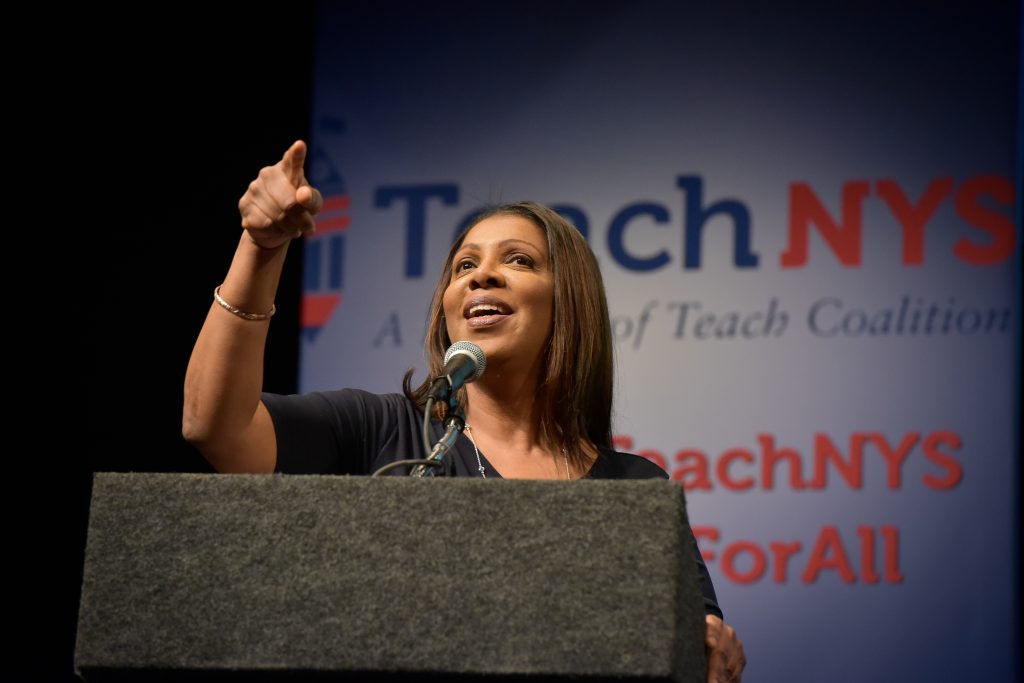
New York Attorney General Letitia James tells the day school students, who hailed from more than fifty schools in New York City, Long Island and Westchester, how they can truly change the world if they decide to act on their passions and beliefs.
New Positions & Promotions
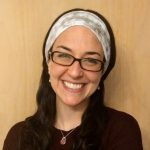 The OU Center for Communal Research welcomes Channah Cohen as Lead Applied Researcher. A former OU-JLIC Educator at Queens College in New York, Channah is an educator at heart and enjoys the human side of research. She deeply believes that research, when applied with sensitivity and intelligence, can create lasting change to real-world problems in contemporary Orthodox life. Channah earned a bachelor’s in psychology from YU’s Stern College for Women and holds a master’s degree in adult learning and leadership from Teachers College, Columbia University.
The OU Center for Communal Research welcomes Channah Cohen as Lead Applied Researcher. A former OU-JLIC Educator at Queens College in New York, Channah is an educator at heart and enjoys the human side of research. She deeply believes that research, when applied with sensitivity and intelligence, can create lasting change to real-world problems in contemporary Orthodox life. Channah earned a bachelor’s in psychology from YU’s Stern College for Women and holds a master’s degree in adult learning and leadership from Teachers College, Columbia University.
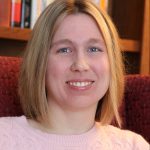 Michelle Shain joins the Center for Communal Research as Assistant Director. A Social Scientist with a passionate commitment to the well-being of the Jewish community, Dr. Shain spent over ten years at Brandeis University’s Cohen Center for Modern Jewish Studies, where she was involved in ongoing research about the impact of Birthright Israel, among other projects. Dr. Shain holds a bachelor’s in anthropology and Near Eastern and Judaic studies from Brandeis University, a master’s from the Avraham Harman Institute of Contemporary Jewry at the Hebrew University of Jerusalem, and a doctorate in social policy from the Heller School for Social Policy and Management at Brandeis University.
Michelle Shain joins the Center for Communal Research as Assistant Director. A Social Scientist with a passionate commitment to the well-being of the Jewish community, Dr. Shain spent over ten years at Brandeis University’s Cohen Center for Modern Jewish Studies, where she was involved in ongoing research about the impact of Birthright Israel, among other projects. Dr. Shain holds a bachelor’s in anthropology and Near Eastern and Judaic studies from Brandeis University, a master’s from the Avraham Harman Institute of Contemporary Jewry at the Hebrew University of Jerusalem, and a doctorate in social policy from the Heller School for Social Policy and Management at Brandeis University.
 Political Strategist Nika Milbrun recently joined Teach NYS, a branch of the OU’s Teach Coalition. Nika brings a decade of campaign and state government experience to Teach NYS, where she will oversee the organization’s grassroots advocacy initiatives, manage the state and city lobbying teams and engage with legislators to help secure government support for nonpublic schools across New York. Nika holds a bachelor’s degree in political science from St. John’s University.
Political Strategist Nika Milbrun recently joined Teach NYS, a branch of the OU’s Teach Coalition. Nika brings a decade of campaign and state government experience to Teach NYS, where she will oversee the organization’s grassroots advocacy initiatives, manage the state and city lobbying teams and engage with legislators to help secure government support for nonpublic schools across New York. Nika holds a bachelor’s degree in political science from St. John’s University.
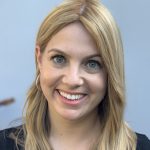 Teach Florida welcomes Ruchie Gross-Berger as the new Miami/Dade Field Director. Ruchie will be responsible for engaging supporters to adovcate and promote safe and affordable nonpublic schools. Ruchie comes to Teach Florida after six years at Miami’s JCS Kosher Food Bank, where she served most recently as Program Coordinator. Ruchie holds a bachelor’s in psychology from Touro College and lives in Miami Beach.
Teach Florida welcomes Ruchie Gross-Berger as the new Miami/Dade Field Director. Ruchie will be responsible for engaging supporters to adovcate and promote safe and affordable nonpublic schools. Ruchie comes to Teach Florida after six years at Miami’s JCS Kosher Food Bank, where she served most recently as Program Coordinator. Ruchie holds a bachelor’s in psychology from Touro College and lives in Miami Beach.
Women in Action
Bringing Emerging and Experienced Female Torah Scholars to the Public
This past Shavuot marked a year since the OU Women’s Initiative (WI) Scholars Program was first launched—a program that introduces both emerging and experienced female Torah scholars to the broader public. Providing high-level Torah scholarship, the Scholars Program brings Torah programming to shuls across the country, inspiring communities to deepen their religious and communal engagement.
One such WI scholar is Tal Attia, an OU-JLIC Torah Educator at Brandeis University who served as a scholar-in-residence at Congregation Shaare Tefilla in Dallas, Texas at WI’s “Standing Together at Sinai” program. Fresh from Jerusalem, Attia, a graduate of Michlelet Mevaseret Yerushalayim and Stern College, spends her days delivering high-level shiurim and spiritually mentoring Orthodox students at Brandeis University. After serving as a scholar-in-residence in Dallas, Attia was invited to speak at Congregation Beth Israel Abraham Voliner in Kansas City, Missouri. “Last year, I was a new OU-JLIC educator, and having just moved from Israel I had not yet found opportunities to teach Torah outside of the Brandeis/Boston community,” says Attia. “By inviting me to partake in the Standing Together at Sinai program, the Women’s Initiative helped me expand my reach, empowering me to teach Torah to so many more women.”
This year’s pre-Shavuot program, “Counting Towards Sinai”—a series of scholar-in-residence programs during the weeks of Sefirah—highlighted the growth opportunity between Pesach and Shavuot and featured female scholars in more than twenty-five communities across the United States and Canada including Rachel Besser, Blima Zelinger Maged, Debbie Stone and Dr. Rivka Blau. Other Scholars programs include a Simchat Torah morning shiur by local scholars, Shabbat Shuva programming and a monthly Rosh Chodesh Virtual Lunch ‘n Learn shiur.
To date, more than 100 female Torah scholars, both emerging and experienced, have been introduced to communities across North America, from Vancouver, BC to Newton, Massachusetts.
For more information about the Scholars Program and other WI programs, visit ou.org/women.
New From OU Press
COMING SOON
Torah Beloved: Reflections on the Love of Torah and the Celebration of the Holiday of Matan Torah
By Rabbi Norman Lamm
Edited by Daniel Gober
OU Press
“For they are our life and the length of our days; on them will we meditate day and night.”
These words about the Torah, which we recite every night, represent the attitude of Judaism toward the act of studying Torah—it is not merely an intellectual exercise or one mitzvah among many others, but the value and meaning of our lives. Torah Beloved, a collection of sermons relating to Shavuot, the giving of the Torah and the love of Torah, expresses the Jewish attitude with the eloquence and felicity for which Rabbi Dr. Norman Lamm is renowned.
One brief excerpt, from a sermon given on the first Shabbat of the yearly Torah reading cycle gives a sense of Rabbi Lamm’s ability to convey an essential message with wit and verve:
Reading or studying Torah with love also sensitizes you to the novelty and surprise that are latent within Torah, to the unpredictably delightful ideas waiting to be conjured up by love and intelligence. A year or two ago, there appeared a book edited by Eric Marshall and Stuart Hample which was a collection of children’s letters to God. One of them, most appropriate to this Sabbath, when we recommence the cycle of the Torah, reads as follows:
Dear God:
Maybe you can write some more stories because we’ve already read everything you have written more than once.
Thanks in advance.
Some people take that childish attitude with regard to the study of the Torah as we commence Genesis once again: the same stories, the same laws, not a single change . . . But that is a childish attitude. If our attitude is mature, if we approach Torah with respect, with awareness of its depth, and with love, then the new cycle of parashot means for us the anticipation of new discoveries, novel insights, great ideas we have not yet been introduced to.
Torah Beloved introduces readers to some novel insights and great ideas, not only about learning Torah but about loving Torah.
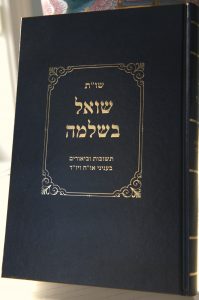 NEW
NEW
Shoel B’Shlomo
By Rabbi Asher Bush
OU Press
Rabbi Asher Bush, spiritual leader of Congregation Ahavat Yisrael of Wesley Hills, New York, and a veteran Jewish studies teacher at The Frisch School in Paramus, New Jersey, has written extensively on halachic topics both in Hebrew and English. Shoel B’Shlomo, his second major work on halachic subjects, contains over eighty teshuvot (halachic responsa) in Hebrew on subjects in Orach Chaim and Yoreh Deah. Unlike most halachic works published in the United States, this is not merely a guidebook or collection of rulings of leading rabbis. The work consists of original rulings composed in the style of classical responsa. The sefer deals with a wide range of questions on contemporary topics including health and medicine, Shabbat, yom tov, kashrut and mourning. He addresses topics including the use of a therapy dog on Shabbat, getting a manicure on Chol HaMoed, and when to start aveilut when participating in a funeral via Skype or telephone. Some of the responsa deal with halachot which seem to receive less attention in the contemporary world than they should, such as standing for the elderly, honoring one’s older brother, and reciting extra prayers on Shabbat for Israel in times of crisis. Others deal with some of the more contentious issues facing our community, such as whether pidyon shevuyim (the obligation to redeem a fellow Jew from captivity) applies to those who have broken the law.Rabbi Bush’s methodology involves analyzing each topic from its earliest sources in the Mishnah and Gemara, tracing it through the Rishonim and various posekim through our own time. The sefer contains haskamot from both Rav Hershel Schachter and Rav Mordechai Willig, leading Torah figures of our generation with whom Rabbi Bush has interacted extensively.
Named in memory of Rabbi Bush’s father and the late Rav Shlomo Kahn, Shoel B’Shlomo is a testament to the commitment of the many devoted Jews who care deeply about Torah and who ask about observing and following it correctly.

